Learn
Faire versus jouer
Many people enjoy playing sports and games during their free-time. Here are some vocabulary words that will help you talk about les sports et les jeux (the sports and games) you enjoy. Read, study, and pronounce each word.
Le vocabulaire
l’aérobic - aerobics
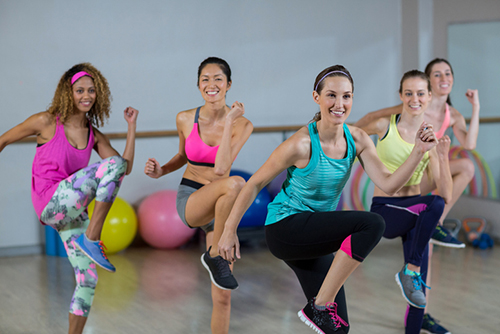
l'alpinisme - mountain climbing
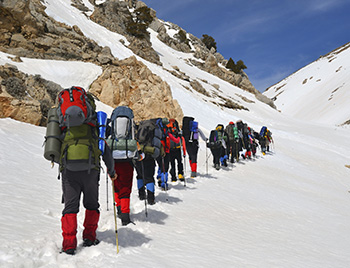
les arts martiaux - martial arts
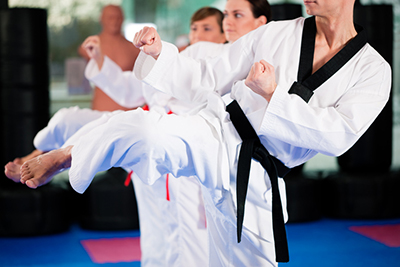
l’athlétisme - track and field

le base-ball - baseball
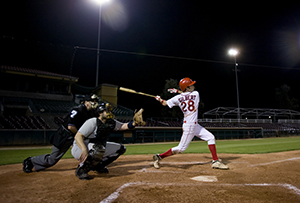
le basket - basketball

les cartes - cards

la course - running
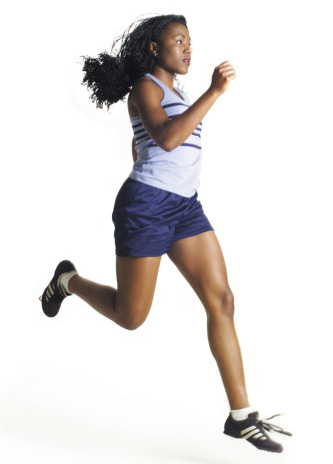
les dames - checkers
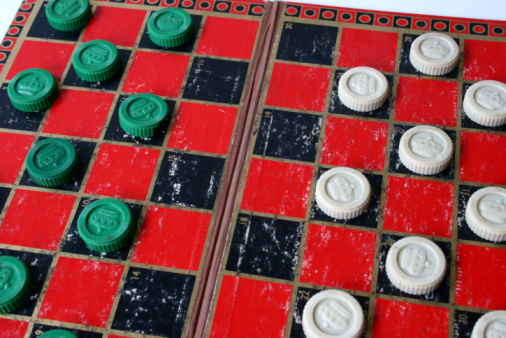
les échecs - chess
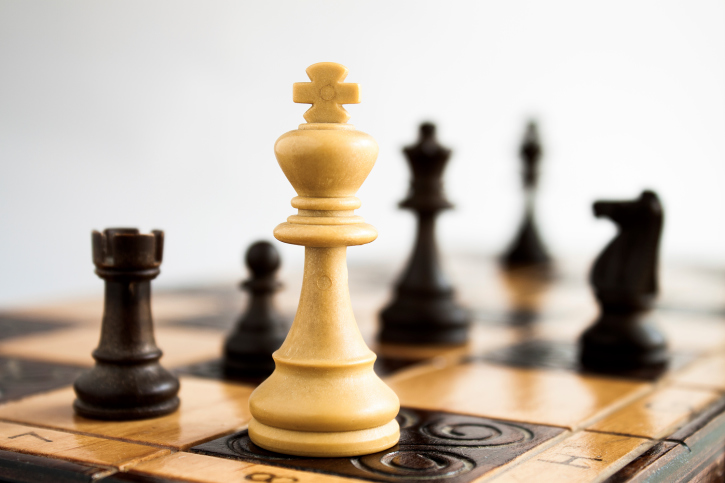
le foot/le football - soccer

le football américain - football

la gymnastique - gymnastics

le golf - golf
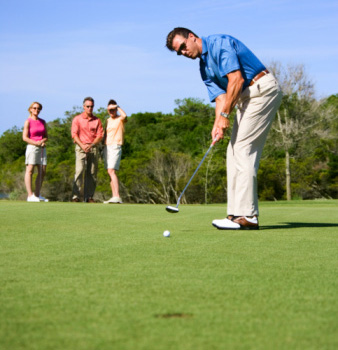
le hockey - hockey
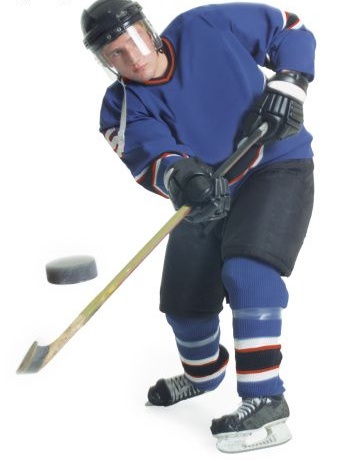
la lutte - wrestling

le patin à glace - ice skating
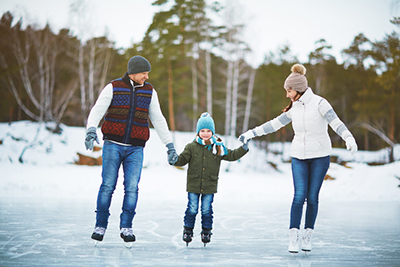
le patin à roulettes - roller skating
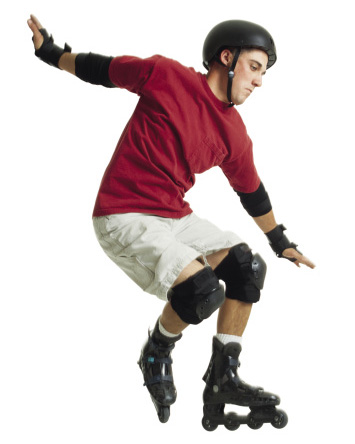
la pêche - fishing
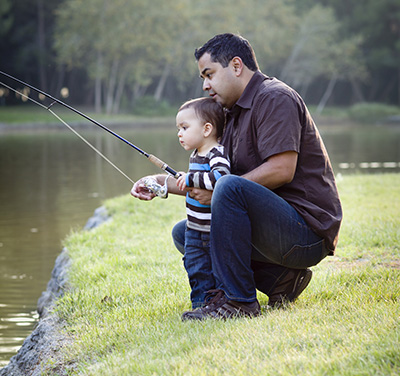
la plongée = diving

la randonnée - hiking

le ski - skiing

le ski nautique - water skiing
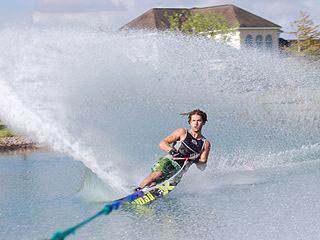
le tennis - tennis

le vélo - biking

la voile - sailing
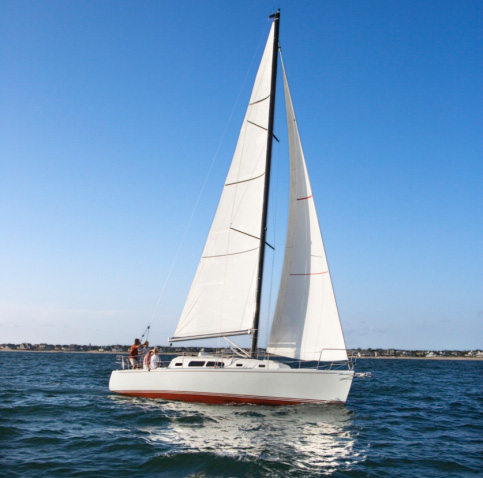
le volley - volleyball

Les instruments de musique
Do you play a musical instrument? It’s a great hobby and a fun way to pass the time. Read, study, and pronounce each musical instrument on the following slides. Notice that many of the words are cognates.
la batterie - drums
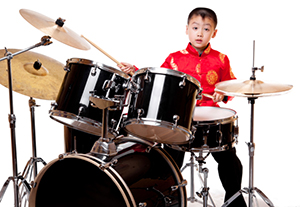
la clarinette - clarinet
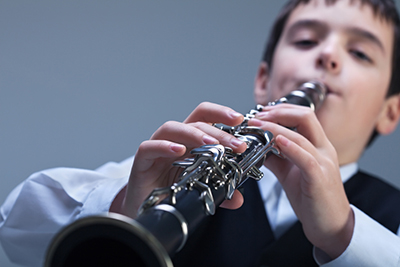
le cor d'harmonie - french horn
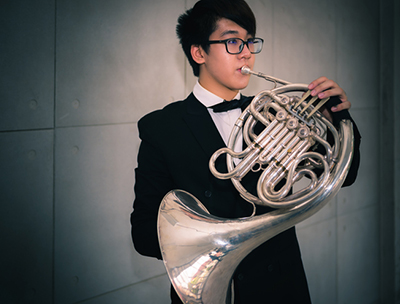
la flûte - flute
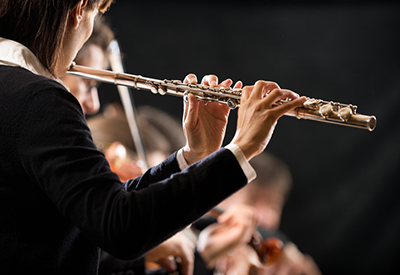
la guitare - guitar

le hautbois - oboe
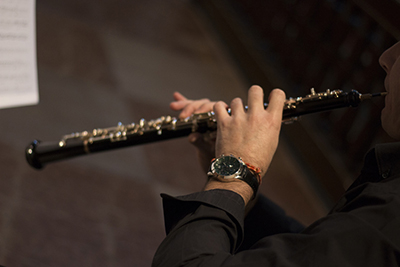
l'orgue - organ

le piano - piano

le piccolo - piccolo
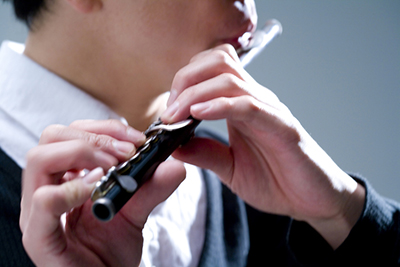
le saxophone - saxophone
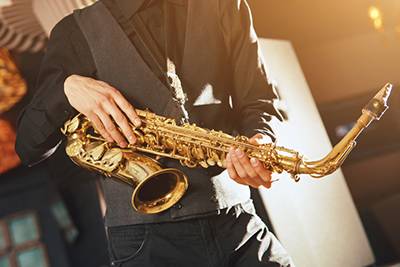
le trombone - trombone
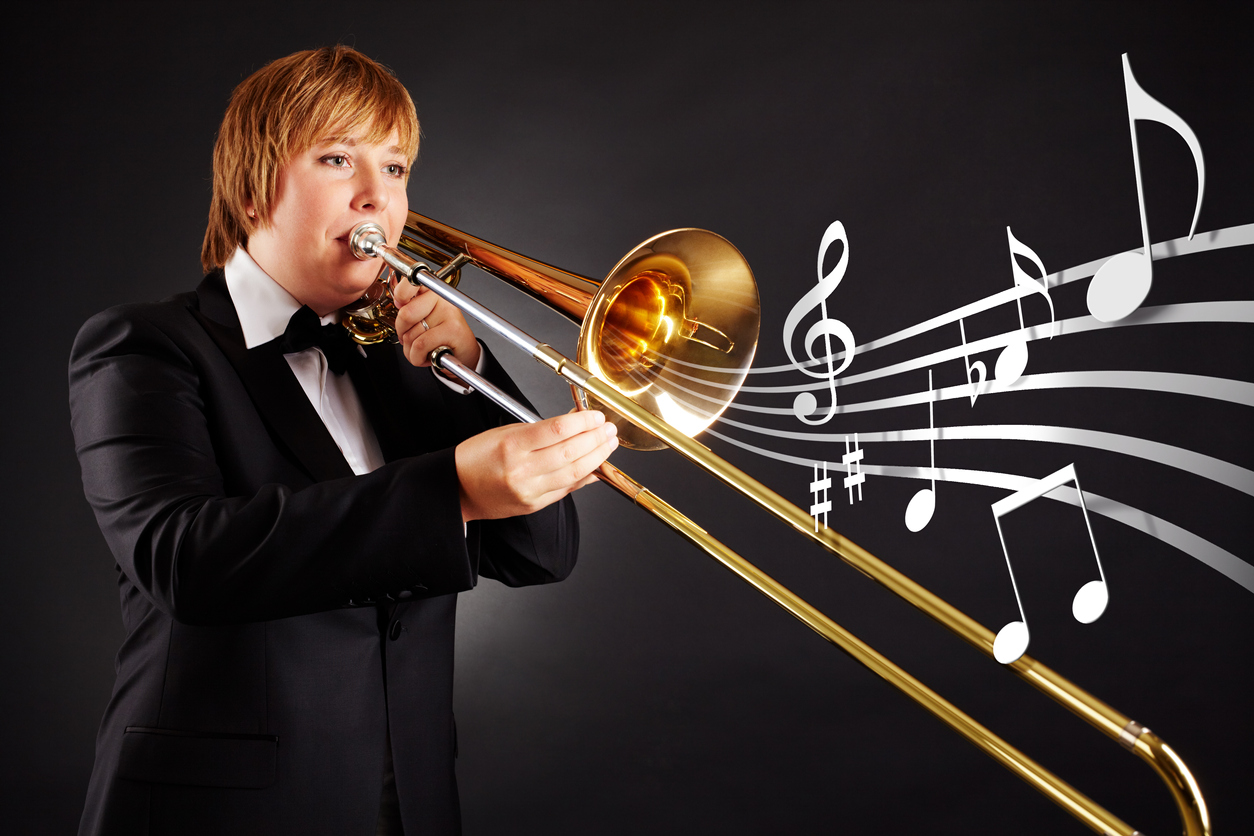
la trompette - trumpet

le tuba - tuba
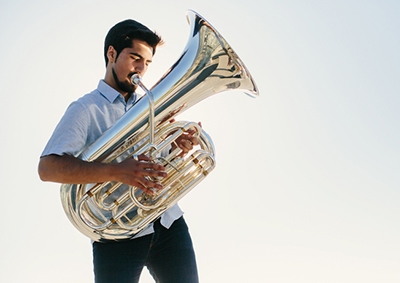
le violon - voilin

le violoncelle - cello
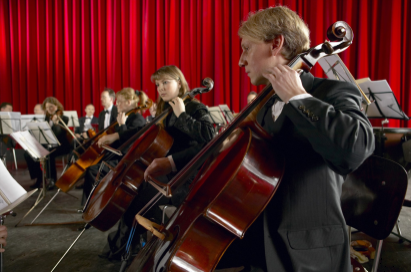
Grammar
Le verbe jouer
Do you remember the verb jouer? It means to play, and it is a regular -ER verb. Read, study, and listen to the six forms of the verb jouer.
| Singular | Plural | ||
|---|---|---|---|
| je joue | I play | nous jouons | we play |
| tu joues | you (s.) | vous jouez | you (pl.) play |
| il/elle joue | he/she plays | ils/elles jouent | they play |
je joue
tu joues
il/elle joue
nous jouons
vous jouez
ils/elles jouent
Using jouer
You will use the verb jouer with many of the vocabulary words in this lesson. In English, you play basketball, play cards, and play the piano, right? In French, it is very similar. You will use the verb jouer with either the preposition à or the preposition de, depending on the activity:
- jouer à for sports and games
- jouer de for musical instruments
Le preposition à
You have learned that the preposition à can contract with the definite article. When using à with the verb jouer, the same rules apply. Do you remember the four forms?
- à + le = au à + le volley = au volley
- à + les = aux à + les cartes = aux cartes
- à + la = à la à + la plage = à la plage
- à + l’ = à l’ à + l’hôtel = à l’hôtel
Note that the first two forms (au and aux) contract when combined, while the other two stay the same.
Le preposition de
The preposition de can also contract with the definite article. As with à, de contracts with le and les, and stays the same with la and l’.
- de + le = du de + le piano = du piano
- de + les = des de + les violons = des violons
- de + la = de la de + la flûte = de la flûte
- de + l’ = de l’ de + l’orgue = de l’orgue
Important Note: The words de la, du, de l’ and des will change to de or d’ in a negative sentence.
Jouer with prepositions
Read and study the examples below to see how jouer is used with de and à to talk about playing instruments and playing sports.
- Le garçon joue au basket. The boy plays basketball.
(jouer + à + sport)
- Les filles jouent au volley. The girls play volleyball.
(jouer + à + sport)
- Je ne joue pas aux dames. I am not playing checkers.
(jouer + à + game / no change in the negative)
- Est-ce que tu joues du piano? Do you play the piano?
(jouer + de + instrument)
- Non, je ne joue pas de piano. No, I do not play the piano.
(jouer + de + instrument / negative = de)
Le verbe faire
A second verb that you will often use with sports and activities is the verb faire, which means to do or to make. It is an irregular verb, so its forms completely change. Read, study, and listen to the six forms of the verb faire.
| Singular | Plural | ||
|---|---|---|---|
| je fais | i do | nous faisons | we do |
| tu fais | you (s.) do | vous faites | you (pl.) do |
| il/elle fait | he/she does | ils/elles font | they do |
je fais
tu fais
il/elle fait
nous faisons
vous faites
ils/elles font
Using faire
In English, you would never say she plays gymnastics, right? In French, the rule is the same. If you would say someone does a sport in English, you will use faire with that sport in French. Track, martial arts, and wrestling are other examples of sports for which we use faire. The verb faire will always take the preposition de with sports or activities, so the contractions will be de la, du, de l’, or des. When the sentence is negative, the forms will become de or d’.
Faire examples
Read and study the following examples of faire.
- Elle fait de la gymnastique.
She does gymnastics.
- Est-ce que tu fais de l’alpinisme?
Do you mountain climb?
- Non, je ne fais pas d’alpinisme.
No, I do not mountain climb.
(negative sentence; de l’ changes to d’)
- Il fait de la randonnée le samedi.
He hikes on Saturdays.
- Nous ne faisons pas de patin à glace en été.
We do not ice skate in the summer.
(negative sentence)
Culture
France is well-known for its wonderful culture and the many products that have evolved from this culture: art, fashion, food, dance, architecture, and literature – just to name a few!
Use the following links to learn more about French culture. Be sure to click on the various buttons at the top of the webpages to explore the different topics, including art and design, dance and theater, parks and gardens, architecture, and lifestyle.
Many people believe the majority of products that are exported from France and sent around the world are luxury items such as wine, chocolates, and perfume. Not true!
Although France does manufacture a large number of these products, the top categories of exports may surprise you. Read France’s Top Ten Exports to learn the truth!